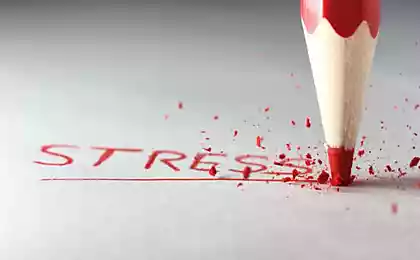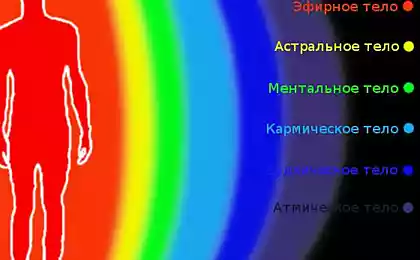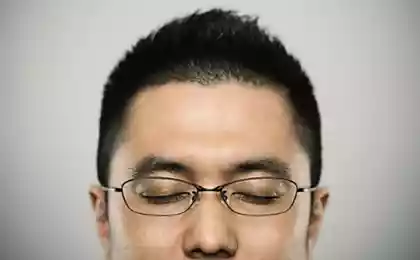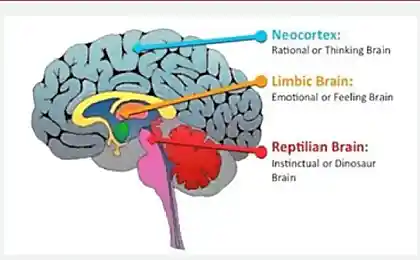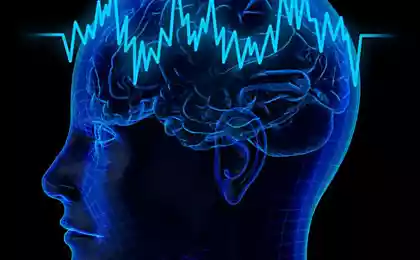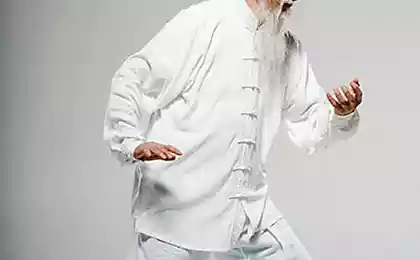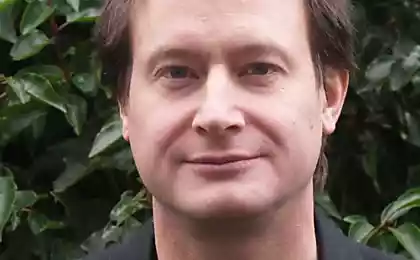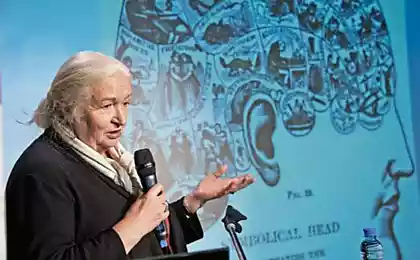510
STRESS: the basic responses of the body
Many of us useful to learn about effective methods by which we can deal with the consequences of emotional stress and tension, to restore harmony, balance in your physical, emotional and mental health, feel full of strength and energy.
Sometimes we suffer from the influence of accumulated minor stresses, and sometimes gravely injured.
Instructors kinesiology around the world have experimented with the application of techniques: "Healing touch" to assist in situations of minor and severe emotional stress, and this article summarizes the results of their work.
In order to understand how we can help ourselves to cope with stress, it is important to first understand the basic responses of our body to stress.
Despite the fact that we are all different, what causes upsetting us and the reactions of our organisms are also different, there are certain patterns used in the body changes.

Hans Selye, the founder of stress research found that the stress lies deep process – the basic response of the body is essentially the same for all people. This process he called the General adaptation syndrome (CCAS), and showed that he begins to act on us, once we understand that we need to react to changes.
Types of reactions:
Stage 1: PREVENTION.
When we are faced with stress, the brain immediately sends a signal to the body of the release into blood of stress hormones from the glands where they are produced and accumulated. These hormones are carried to every part of the body. They produce many metabolic changes, but for us it is important to understand two of them:
1. The blood starts to bypass the digestive tract and abundantly flows to the skeletal muscles. There stress hormones prepare each cell to develop a large amount of energy.
2. Reduced blood flow to the front part of the brain (the cortex), that is, disables the secondary region of the brain, we are streamlining our processes of thinking.
Now we are ready for action. If the stressor is weak and the need for response is small, the process stops at this initial stage. We are back to normal. But if the stressor continues its impact or necessity of the response is large, we proceed to the next stage of SLA.
Stage 2: the ANSWER.
Well-known name of this phase – "fight/flight". In it we attempt to cope with stressors and to protect themselves. Overall, our choice is straightforward:
While fleeing blood pours from the face, neck and chest and fed to the hands and feet, to make it easier to run. That is why the face turns pale when we are afraid.
Our body still mobilized, even if we just feel anger or fear without any action, so after the emotional turmoil we so often remain tense and tired muscles.
When the "fight and flight" blood is removed from the anterior lobe of the brain. In this area of the brain is our conscious mind that helps us in solving our complex problems. The more stressed we are, the more this function is disabled. Control of the situation earlier and more primitive centers of the brain. These decisions are made unconsciously, based on our instincts, whose main aim is survival.
Fortunately, our stressors are often dispersed by themselves, or we cope with them. If we effectively respond, then the stress hormones are burned circulating in our bloodstream, the body returns to a normal state.
But, sometimes our attempts to cope with the changes exceed our capacity, then enters a different protective mechanism.
Stage 3: SHOCK.
We are stunned, lost his balance, we do not know where to go. We already can't help myself, falling apart, losing the head. Can't think clearly, can't remember, go to a standstill and completely lost. We've all experienced the unpleasant symptoms of SHOCK.
But not all of us know that this condition is to prevent fatal stress overload that we experience physical, mental disorientation we really helps. There are times when our body is thrown over-dose of stress hormones. They launch reaction – often useful – violate the chemical structure of our body.
Attempts to cope with the constant problems we exhaust and Deplete. A strong emotional shock can dramatically increase the level of stress hormones.
Events may too quickly follow each other. There comes a time when we must stop and regain state of internal balance. If this does not happen, our physiological responses, we will eventually kill. The mechanism of the SHOCKS is calculated that we stop.
In contrast to the phase of the RESPONSE, which mobilizes us to the adoption of the changes SHOCK us demobilized. Blood is withdrawn from the extremities and directed to the abdominal organs, liver, lungs and kidneys start to excrete from the blood stress hormones.
Muscle gets less blood, hands and feet becomes much harder to move. This condition pushes us to slow down and relax. At the same time, blood flow to the brain is reduced even more, down to our mental ability to ensure that we could not too quickly to react to something new.
A small overdose of stress, leading to small SHOCKS. Most of us get into trouble, we lose interest and make mistakes in everyday Affairs, feel like fall behind, do not have time or notice that you're starting to postpone all on then.
More serious SHOCK manifested in the form of clouding of thinking, outright negligence, or even dizziness. At this level of physical activity requires additional efforts. We may feel tired, which doesn't go away even after sleep. Due to the fact that in the abdomen lot of blood, you can feel the heaviness, there is a desire to sit or lie down.
High degree of SHOCK can quickly determine if the person faints easily.
Shocking news and unbearable pain usually give a result that represents the last line of protection against too difficult for the person situations.
Many can be suppressed by the phase of SUPPRESSION, because they realize they have lost control, but the actual function of this stage is protection. After a period of stress required period of recovery to allow your body to repair the damage and start again.
Of greatest interest to us is the functioning of the anterior brain in that moment, when we are under stress, since the theory underlying the technique of Releasing emotional stress (VES), which we use in "Healing touch" consists of the following:
Touching the frontal mounds restores proper blood flow to the anterior lobe of the brain, so we can deal with stress consciously, not unconsciously.
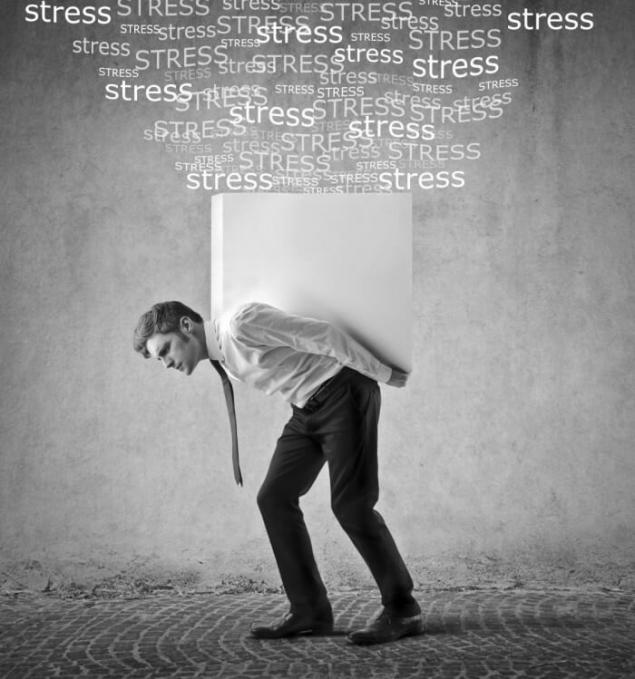
Recent studies have shown that despite the fact that the lower nerve centers of the brain control most of our reactions to stress, certain reactions are the responsibility of the front parts of the brain.
The frontal cortex regulates heart rate and force of heart contractions, when the stress takes over some of the other functions of the body from the lower nerve centers of the brain. However, the frontal lobe can cause excessive stress response, which in some cases can lead to heart attack and death.
Studies suggest that, at least, 15% of people who died from a heart attack, no blockage of the coronal arteries, therefore, the cause of death of these people was something else and not a lack of blood flow.
Dr. James Skinner from the Medical College of Baylor based on its studies have shown that animals can die of heart fibrillation (irregular contractions of the heart muscles), even if the blood flow to the heart is sufficient.
According to him, the animals with insufficient blood flow to the heart occurs fibrillation unless they are under stress. Heart in no way responds to the stress if removed the frontal lobe of the brain or if the activity of the frontal cortex are blocked ("Physiology today", July 1980. p. 124)
What we can understand from this study?
Changes in blood flow to the frontal cortex of the brain under stress are one of the factors which not only reduces our ability to think and consciously deal with stress, but also directly provoke some over-reaction systems of the body.
Beliefs that limit your lifeLike a free man
Using techniques of "Healing touch", we can normalize brain function and return to normal ability to think and normal reactions of the body, even though what we experience stress.published
according to the materials of the works of N. Gokel and L. white Ferguson
Author: Elena Kostina
Source: www.kineziology.ru/readarticle.php?article_id=35
Sometimes we suffer from the influence of accumulated minor stresses, and sometimes gravely injured.
Instructors kinesiology around the world have experimented with the application of techniques: "Healing touch" to assist in situations of minor and severe emotional stress, and this article summarizes the results of their work.
In order to understand how we can help ourselves to cope with stress, it is important to first understand the basic responses of our body to stress.
Despite the fact that we are all different, what causes upsetting us and the reactions of our organisms are also different, there are certain patterns used in the body changes.

Hans Selye, the founder of stress research found that the stress lies deep process – the basic response of the body is essentially the same for all people. This process he called the General adaptation syndrome (CCAS), and showed that he begins to act on us, once we understand that we need to react to changes.
Types of reactions:
Stage 1: PREVENTION.
When we are faced with stress, the brain immediately sends a signal to the body of the release into blood of stress hormones from the glands where they are produced and accumulated. These hormones are carried to every part of the body. They produce many metabolic changes, but for us it is important to understand two of them:
1. The blood starts to bypass the digestive tract and abundantly flows to the skeletal muscles. There stress hormones prepare each cell to develop a large amount of energy.
2. Reduced blood flow to the front part of the brain (the cortex), that is, disables the secondary region of the brain, we are streamlining our processes of thinking.
Now we are ready for action. If the stressor is weak and the need for response is small, the process stops at this initial stage. We are back to normal. But if the stressor continues its impact or necessity of the response is large, we proceed to the next stage of SLA.
Stage 2: the ANSWER.
Well-known name of this phase – "fight/flight". In it we attempt to cope with stressors and to protect themselves. Overall, our choice is straightforward:
- we accept change, if you can;
- avoid it if you can't accept it;
- I struggle with it, when you can't avoid it;
- surrender to him, unless forced.
While fleeing blood pours from the face, neck and chest and fed to the hands and feet, to make it easier to run. That is why the face turns pale when we are afraid.
Our body still mobilized, even if we just feel anger or fear without any action, so after the emotional turmoil we so often remain tense and tired muscles.
When the "fight and flight" blood is removed from the anterior lobe of the brain. In this area of the brain is our conscious mind that helps us in solving our complex problems. The more stressed we are, the more this function is disabled. Control of the situation earlier and more primitive centers of the brain. These decisions are made unconsciously, based on our instincts, whose main aim is survival.
Fortunately, our stressors are often dispersed by themselves, or we cope with them. If we effectively respond, then the stress hormones are burned circulating in our bloodstream, the body returns to a normal state.
But, sometimes our attempts to cope with the changes exceed our capacity, then enters a different protective mechanism.
Stage 3: SHOCK.
We are stunned, lost his balance, we do not know where to go. We already can't help myself, falling apart, losing the head. Can't think clearly, can't remember, go to a standstill and completely lost. We've all experienced the unpleasant symptoms of SHOCK.
But not all of us know that this condition is to prevent fatal stress overload that we experience physical, mental disorientation we really helps. There are times when our body is thrown over-dose of stress hormones. They launch reaction – often useful – violate the chemical structure of our body.
Attempts to cope with the constant problems we exhaust and Deplete. A strong emotional shock can dramatically increase the level of stress hormones.
Events may too quickly follow each other. There comes a time when we must stop and regain state of internal balance. If this does not happen, our physiological responses, we will eventually kill. The mechanism of the SHOCKS is calculated that we stop.
In contrast to the phase of the RESPONSE, which mobilizes us to the adoption of the changes SHOCK us demobilized. Blood is withdrawn from the extremities and directed to the abdominal organs, liver, lungs and kidneys start to excrete from the blood stress hormones.
Muscle gets less blood, hands and feet becomes much harder to move. This condition pushes us to slow down and relax. At the same time, blood flow to the brain is reduced even more, down to our mental ability to ensure that we could not too quickly to react to something new.
A small overdose of stress, leading to small SHOCKS. Most of us get into trouble, we lose interest and make mistakes in everyday Affairs, feel like fall behind, do not have time or notice that you're starting to postpone all on then.
More serious SHOCK manifested in the form of clouding of thinking, outright negligence, or even dizziness. At this level of physical activity requires additional efforts. We may feel tired, which doesn't go away even after sleep. Due to the fact that in the abdomen lot of blood, you can feel the heaviness, there is a desire to sit or lie down.
High degree of SHOCK can quickly determine if the person faints easily.
Shocking news and unbearable pain usually give a result that represents the last line of protection against too difficult for the person situations.
Many can be suppressed by the phase of SUPPRESSION, because they realize they have lost control, but the actual function of this stage is protection. After a period of stress required period of recovery to allow your body to repair the damage and start again.
Of greatest interest to us is the functioning of the anterior brain in that moment, when we are under stress, since the theory underlying the technique of Releasing emotional stress (VES), which we use in "Healing touch" consists of the following:
Touching the frontal mounds restores proper blood flow to the anterior lobe of the brain, so we can deal with stress consciously, not unconsciously.

Recent studies have shown that despite the fact that the lower nerve centers of the brain control most of our reactions to stress, certain reactions are the responsibility of the front parts of the brain.
The frontal cortex regulates heart rate and force of heart contractions, when the stress takes over some of the other functions of the body from the lower nerve centers of the brain. However, the frontal lobe can cause excessive stress response, which in some cases can lead to heart attack and death.
Studies suggest that, at least, 15% of people who died from a heart attack, no blockage of the coronal arteries, therefore, the cause of death of these people was something else and not a lack of blood flow.
Dr. James Skinner from the Medical College of Baylor based on its studies have shown that animals can die of heart fibrillation (irregular contractions of the heart muscles), even if the blood flow to the heart is sufficient.
According to him, the animals with insufficient blood flow to the heart occurs fibrillation unless they are under stress. Heart in no way responds to the stress if removed the frontal lobe of the brain or if the activity of the frontal cortex are blocked ("Physiology today", July 1980. p. 124)
What we can understand from this study?
Changes in blood flow to the frontal cortex of the brain under stress are one of the factors which not only reduces our ability to think and consciously deal with stress, but also directly provoke some over-reaction systems of the body.
Beliefs that limit your lifeLike a free man
Using techniques of "Healing touch", we can normalize brain function and return to normal ability to think and normal reactions of the body, even though what we experience stress.published
according to the materials of the works of N. Gokel and L. white Ferguson
Author: Elena Kostina
Source: www.kineziology.ru/readarticle.php?article_id=35

